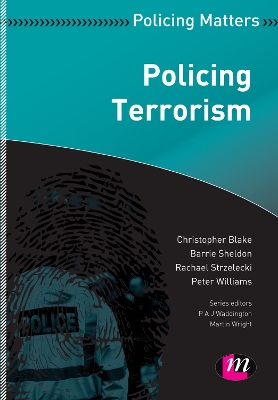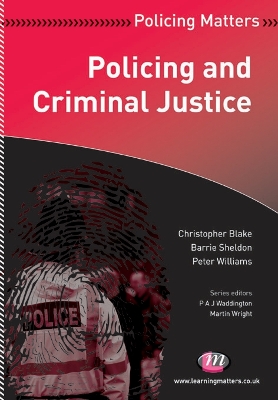Policing Matters
3 total works
The rapid development of modern technologies is having profound implications on modern-day policing. Recent innovations include the proliferation of sophisticated communication and surveillance devices, developments in road traffic and crime investigation techniques, personal safety equipment, the internet and network and computer forensics, all of which are accompanied by often complex new legislative and regulative requirements. This book ensures that policing students are fully informed and completely up to date with changes, and understand the implications and impact that changing technology brings to practice. Each chapter includes clear objectives, links to the NOS, practical and reflective tasks, case studies and summaries.
Policing Terrorism
by Christopher Blake, Barrie Sheldon, Rachael Strzelecki, and Dr Peter Williams
Published 26 January 2012
This is an accessible and up to date text for students on police-related degree courses covering a highly topical area of policing. Terrorism has become a major issue for policing during the 21st century, exacerbated by world events, the emerging new terrorism with its global implications, and a growing need to develop effective counter-terrorism strategies. The book provides students with a historical perspective, introduces a number of well established theories relating to terrorism, and considers how the UK has responded by developing a counter terrorism strategy. In a fast-moving area, it captures the latest changes in legislation and government strategy.
Policing and Criminal Justice
by Christopher Blake, Barrie Sheldon, and Peter Williams
Published 31 March 2010
This text provides an accessible and up-to-date introduction to criminal justice for all those undertaking degrees and foundation degrees in policing. It will also be relevant to degree courses in criminology and criminal justice. The book provides a holistic overview of the Criminal Justice System (CJS) and an exploration of the roles of key players within the system and how the police interact with these organisations. It examines some of the principles that underpin the ′modernisation′ of the police, in particular how the police service collaborates with partner agencies and the rationale associated with the Change Agenda.


